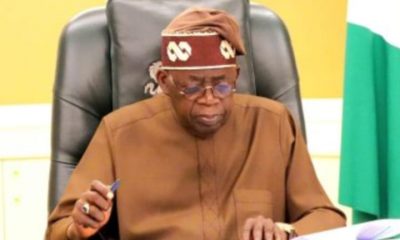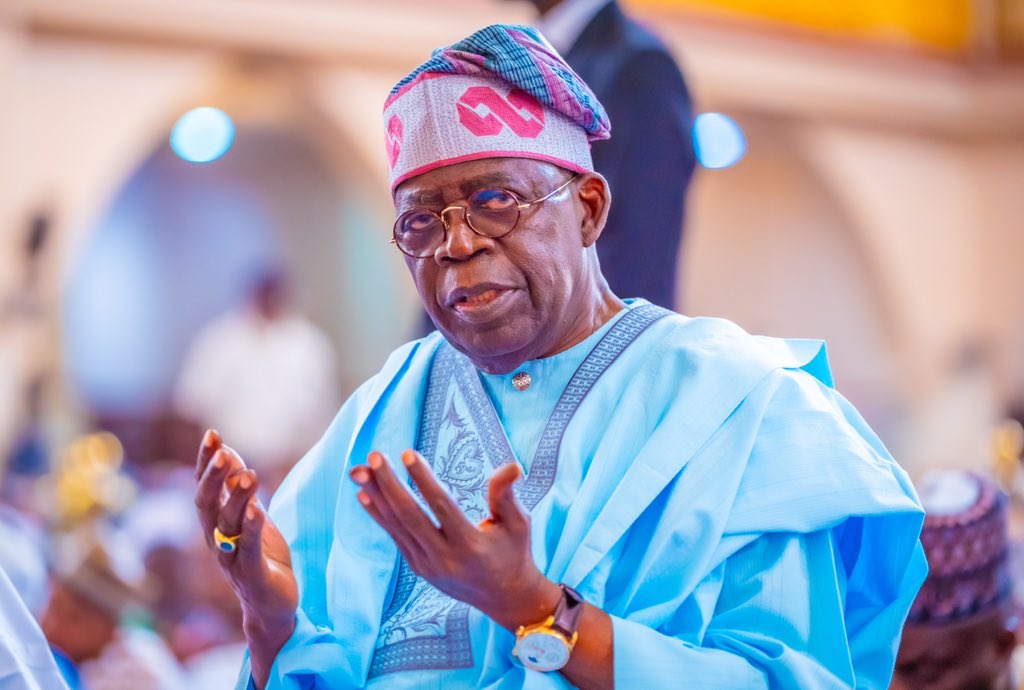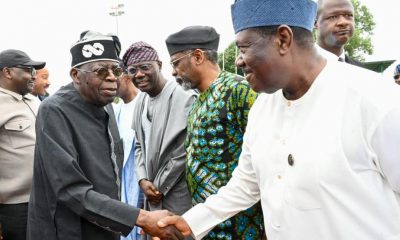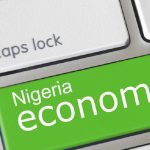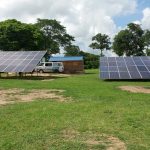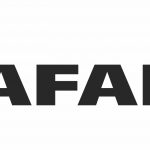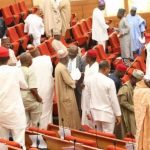General
Cabinet Reshuffle Insufficient to Address Nigeria’s Economic Woes—CNPP
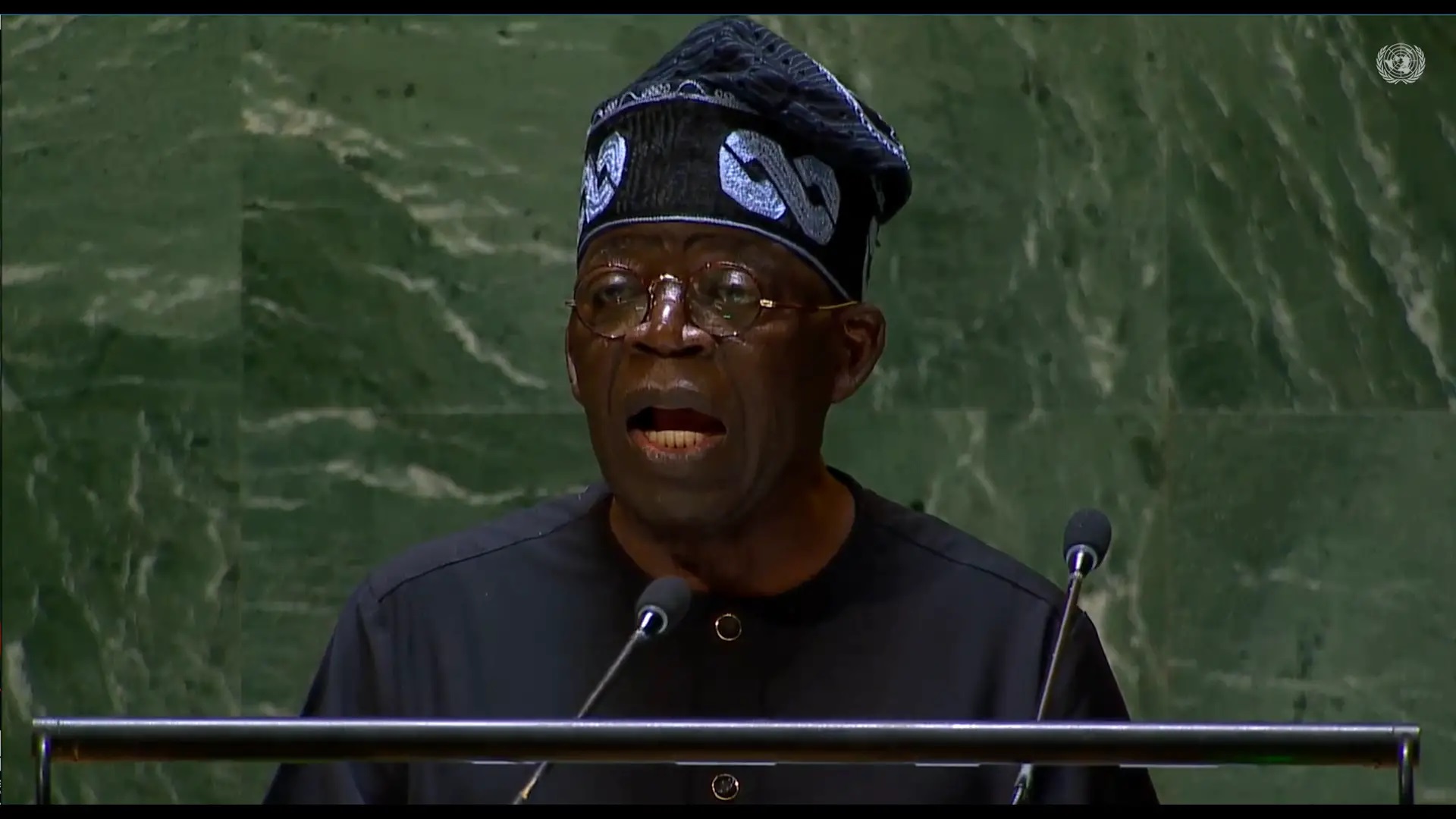
By Modupe Gbadeyanka
President Bola Tinubu has been told that mere making a few changes to his cabinet has not solved the current economic woes bedevilling the country.
This was the submission of the Conference of Nigeria Political Parties (CNPP) in a statement signed by its Deputy National Publicity Secretary, Mr James Ezema.
The group, in the statement, warned Nigerians not to expect significant improvements from the cabinet reshuffle, which saw the exit of five ministers and inclusion of seven persons, with the creation of a new ministry, the Ministry of Livestock Development.
CNPP noted that citizens would continue to face worsening poverty and hunger unless the government reverses the petrol subsidy removal and the negative effects associated with the devaluation of the Naira.
“The recent cabinet reshuffle has generated varied reactions, but we urge Nigerians not to harbor excessive expectations from these changes.
“Until there is a reversal of the petrol subsidy removal and the negative effects associated with the devaluation of the Naira, the ordinary citizens will continue to face worsening impoverishment and hunger,” it stated.
The organisation argued that the removal of the petrol subsidy, although desirable, was implemented too hastily without a workable plan to address the drastic reduction in purchasing power.
“Past administrations had made provisions to cushion the negative impacts of increases in the pump prices of petroleum products, but the current government had no concrete plans for about a year and five months now,” it submitted.
“The high cost of diesel continues to negatively impact the pump price of petrol, as tankers use diesel to transport petrol across the country, leading to increased landing costs per litre,” a part of the statement disclosed.
Additionally, the CNPP highlighted the challenges faced by Small and Medium Scale Enterprises (SMEs) due to high fuel costs and electricity tariffs.
“The promised Renewed Hope Agenda of the President may end up as renewed hopelessness if the current administration does not immediately reverse the cost of petrol to its 2015 pump price and the exchange rate to before May 29, 2015.
“More companies are folding up, and SMEs are nearly non-existent as they cannot afford the cost of fuel to power their businesses due to the high cost of diesel and petrol, and the high electricity tariff is not helping them either,” the group said.
The CNPP emphasized the need for immediate action to reverse the high cost of transportation in the country, which contributes to rising food prices.
“The government must take immediate steps to reverse the high cost of transportation in the country to arrest the increasing cost of food and basic necessities of life,” it urged.
The umbrella body of all registered political parties and political associations in Nigeria said it remains committed to advocating for policies that will alleviate the suffering of the Nigerian people and ensure a prosperous future for all.
“We will continue to advocate for policies that will alleviate the suffering of the Nigerian people and ensure a prosperous future for all,” the CNPP concluded.
General
Senate Passes Electoral Act Amendment Bill, Blocks Electronic Transmission of Results
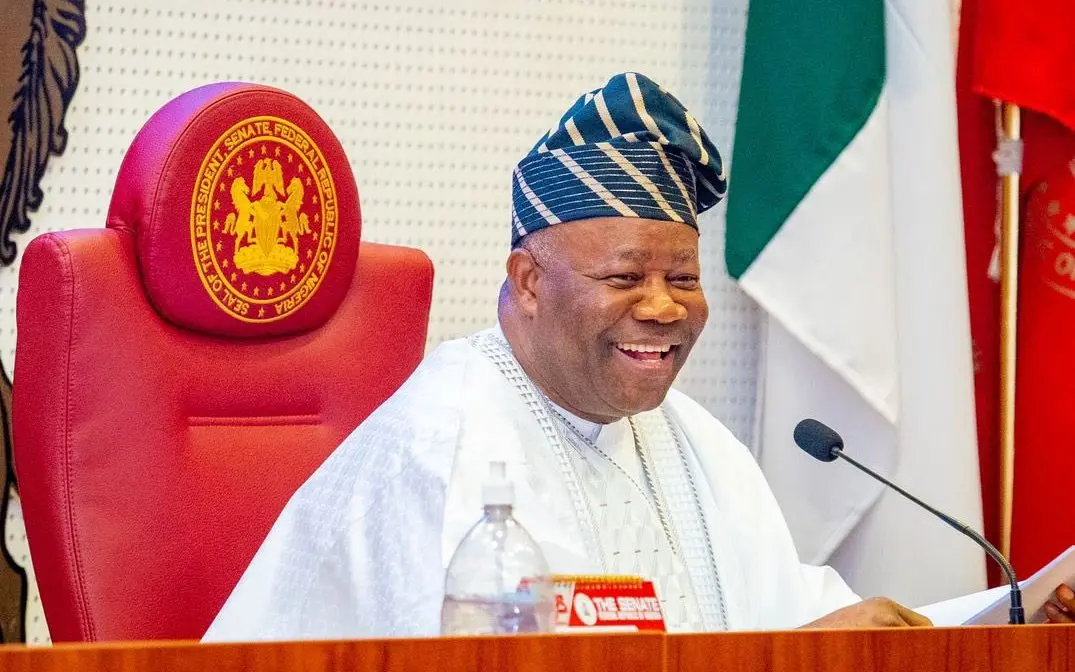
By Modupe Gbadeyanka
The Senate on Wednesday passed the bill to amend the Electoral Act of 2022 after delays, which almost pitched the institution against several Nigerians.
Last week, the upper chamber of the National Assembly headed by the Senate President, Mr Godswill Akpabio, set up a panel to look into the matter, with the directive to submit its report yesterday, Tuesday, February 3, 2026.
However, after the report was submitted yesterday, the red chamber of the parliament said it was going to take an action on it on Wednesday.
At the midweek plenary, the Senate eventually passed the Bill for an Act to Repeal the Electoral Act No. 13, 2022 and Enact the Electoral Act, 2025.
However, some critical clauses were rejected, including the proposed amendment to make is mandatory for the Independent National Electoral Commission (INEC) to transmission election results electronically from polling units to the INEC Result Viewing (IReV) portal.
The clause was to strengthen transparency and reduce electoral malpractice through technology-driven result management.
It also rejected a proposed amendment under Clause 47 that would have allowed voters to present electronically-generated voter identification, including a downloadable voter card with a unique QR code, as a valid means of accreditation.
The Senate voted to retain the existing 2022 provisions requiring voters to present their Permanent Voter’s Card (PVC) for accreditation at polling units, and upheld the provision mandating the use of the Bimodal Voter Accreditation System (BVAS) or any other technological device prescribed by the electoral umpire for voter verification and authentication, rather than allowing alternative digital identification methods as proposed in the new bill.
The Senate also reduced the notice of election from 360 days to 180 days, with the timeline for publishing list of candidates by INEC dropped from 150 days to 60 days.
General
Amupitan Says 2027 Elections Timetable Ready Despite Electoral Act Delay

By Adedapo Adesanya
The Independent National Electoral Commission (INEC) has completed its timetable and schedule of activities for the 2027 general election, despite pending amendments to the Electoral Act by the National Assembly.
INEC Chairman, Mr Joash Amupitan, disclosed this on Wednesday in Abuja during a consultative meeting with civil society organisations.
Mr Amupitan said the commission had already submitted its recommendations and proposed changes to lawmakers, noting that aspects of the election calendar might still be adjusted depending on when the amended Electoral Act is passed.
He, however, stressed that the electoral umpire must continue preparations using the existing legal framework pending the conclusion of the legislative process and presidential assent to the revised law.
According to him, the commission cannot delay critical preparatory activities given the scale and complexity involved in conducting nationwide elections.
The development highlights INEC’s commitment to early planning for the 2027 polls, even as stakeholders await legislative clarity that could shape parts of the electoral process.
Yesterday, the Senate again failed to conclude deliberations on the proposed amendment to the Electoral Act after several hours in a closed-door executive session. The closed session lasted about five hours.
Lawmakers dissolved into the executive session shortly after plenary commenced, to consider the report of an ad hoc committee set up to harmonise senators’ inputs on the Electoral Act Amendment Bill.
When plenary resumed, the Senate President, Mr Godswill Akpabio, did not disclose details of the discussions on the bill.
Despite repeated executive sessions, the upper chamber has yet to pass the bill, marking the third unsuccessful attempt in two weeks.
The Senate, however, said it will not rush the bill, citing the volume of post-election litigation after the 2023 polls and the need for careful legislative scrutiny.
Last week, the red chamber of the federal parliament constituted a seven-member ad hoc committee after an earlier three-hour executive session to further scrutinise the proposed amendments.
General
REA Expects Further $1.1bn Investment for New Mini Power Grids
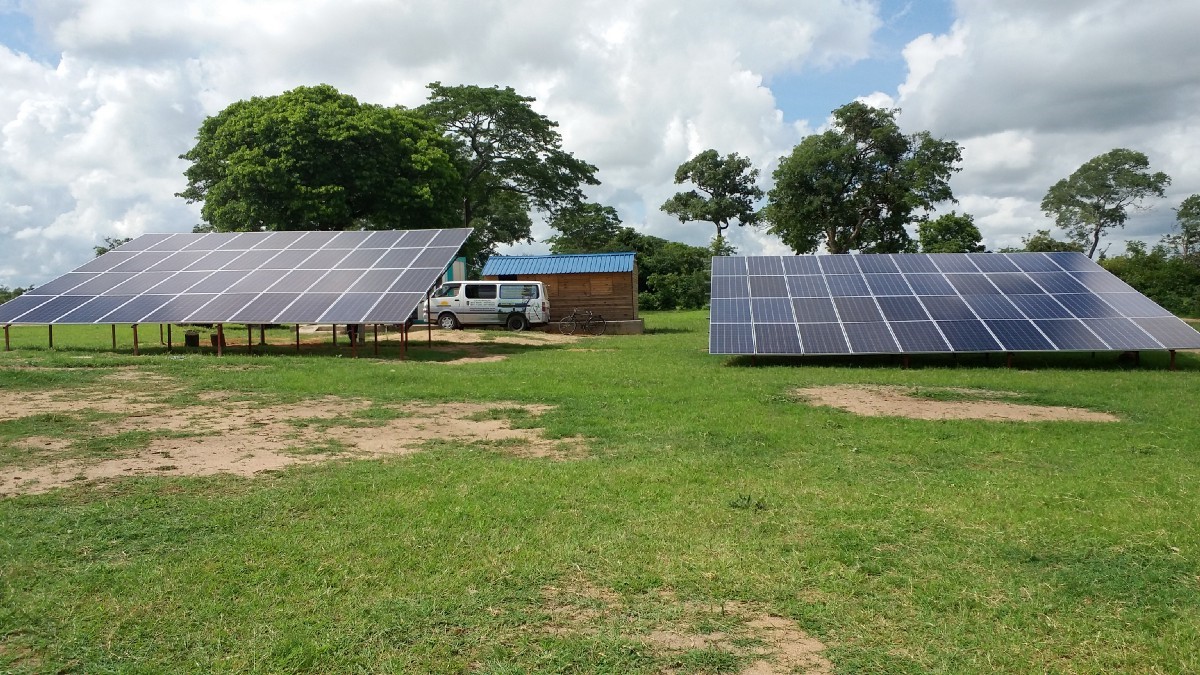
By Adedapo Adesanya
The Managing Director of the Rural Electrification Agency, (REA), Mr Abba Aliyu, is poised to attract an estimated $1.1 billion in additional private-sector investment to further achieve the agency’s targets.
He said that the organisation has received a $750 million funding in 2024 through the World Bank funded Distributed Access through Renewable Energy Scale-up (DARES) project.
He added that this capital is specifically intended to act as a springboard to attract an estimated $1.1 billion in additional private-sector investment, with the ultimate goal of providing electricity access to roughly 17.5 million Nigerians through 1,350 new mini grids.
Mr Aliyu also said that the Nigeria Electrification Project (NEP) has already led to the electrification of 1.1 million households across more than 200 mini grids and the delivery of hybrid power solutions to 15 federal institutions.
According to a statement, this followed Mr Aliyu’s high-level inspection of Vsolaris facilities in Lagos, adding that the visit also served as a platform for the REA to highlight its decentralized electrification strategy, which relies on partnering with firms capable of managing local assembly and highefficiency project execution.
The federal government, through the REA, underscored the critical role the partnership with the private sector plays in achieving Nigeria’s ambitious off-grid energy targets and ending energy poverty.
Mr Aliyu emphasized that while public funds serve as a catalyst, the long-term sustainability of Nigeria’s power sector rests on credible private developers who are willing to invest their own resources.
He noted that public funds are intentionally deployed as catalytic grants to ensure that the private sector maintains skin in the game which he believes is the only way to guarantee true accountability and the survival of these projects over time.
-

 Feature/OPED6 years ago
Feature/OPED6 years agoDavos was Different this year
-
Travel/Tourism9 years ago
Lagos Seals Western Lodge Hotel In Ikorodu
-

 Showbiz3 years ago
Showbiz3 years agoEstranged Lover Releases Videos of Empress Njamah Bathing
-

 Banking8 years ago
Banking8 years agoSort Codes of GTBank Branches in Nigeria
-

 Economy3 years ago
Economy3 years agoSubsidy Removal: CNG at N130 Per Litre Cheaper Than Petrol—IPMAN
-

 Banking3 years ago
Banking3 years agoSort Codes of UBA Branches in Nigeria
-

 Banking3 years ago
Banking3 years agoFirst Bank Announces Planned Downtime
-

 Sports3 years ago
Sports3 years agoHighest Paid Nigerian Footballer – How Much Do Nigerian Footballers Earn








